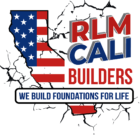When you should not lift a house?
When most people watch one of our movies regarding foundation repair, they note that we typically highlight the raising and leveling of the home’s foundation. This is something that most people find particularly interesting. However, elevating and leveling your home isn’t always going to guarantee the finest results for the foundation of your home as well as for you and your family.
Now, these situations are the most typical when it comes to reasons to not elevate the foundation of your home; nevertheless, it does not imply that we can’t or that we don’t have a solution if you still decide to forward with lifting and leveling your home’s foundation.
Your house has been given a modern makeover.
If you find yourself in this situation, you could get that sick sensation in the pit of your stomach. When a foundation inspector tells you that your home is settling after you have just completed a remodel or when you have just bought a home that has recently been remodeled and you have just finished the remodel.
It is without a doubt not a productive discussion for either of the parties concerned. The house inspector does not want to be the one to deliver unfavorable findings to the homeowner, and you do not want to be the one to hear them either. But the unvarnished reality concerning the house needs to be discussed.
By preventing further settling, and stabilizing the house, you may reduce the amount of damage and maintenance that will need to be done in the future. We will still implement the proposed solution just as we would if we were going to raise the home; but, after the piers have been erected, all that will be necessary to transfer the weight of the home onto the pier system is to load the weight of the home onto each individual pier.
Your home’s foundation has become brittle or has degraded completely.
We see this on homes that are at least 50 years old and also on homes that have had consistent water present around the home’s foundation. Additionally, we notice this on properties that have had water damage in the past.
The same thing occurs to humans as we get older, the same thing happens to concrete: it starts to break down. I’m sorry to be the bearer of bad news, but we still haven’t found out how long our run will be! 😉 As the concrete crumbles, the structure will gradually lose its strength and stability as a result. To put it another way, the liquid’s strength is reduced compared to when it was first spilled.
If the foundation of a house is continually submerged in water, the water will eventually start to deteriorate the concrete that makes up the foundation. The presence of water on a consistent basis, followed by periods of drying out, will cause the concrete to begin to disintegrate. If you are able to pull something along the footing of the concrete and observe the white dust that comes off of it, or if you are able to actually produce an indentation in the concrete, then you will be able to determine that the concrete is deteriorating.
In most cases, when the foundation of your house has progressed to this point, we will wish to discuss our results with a structural engineer. In most cases, they will recommend that we stable the house in its current location, or that we stabilize the house in its current location AND provide some additional support, such as a sister footing. When the damage to the foundation is particularly severe, it may be necessary to completely remove and then repair it.
Call the RLM Retrofit Foundation for any additional information. Please contact us at the number (800) 824-6699 or visit our website at the address https://rlmretrofitfoundation.com/. We provide services for both Foundation Inspection City Of Industry and repair.
How the home is supported by its footings City Of Industry
Why Do You Need Foundation Repair City Of Industry










